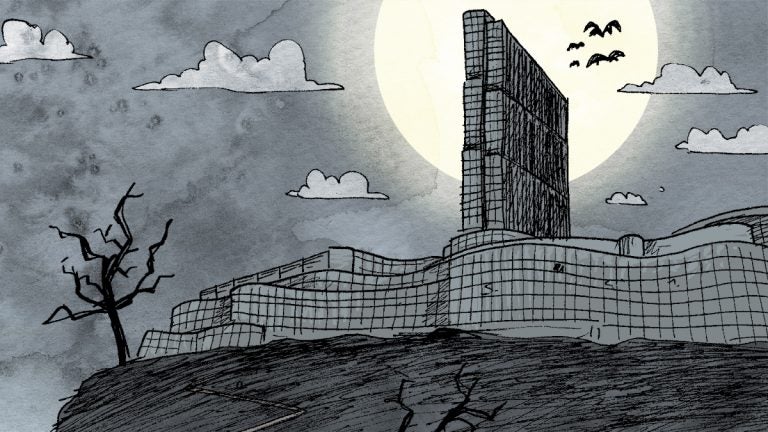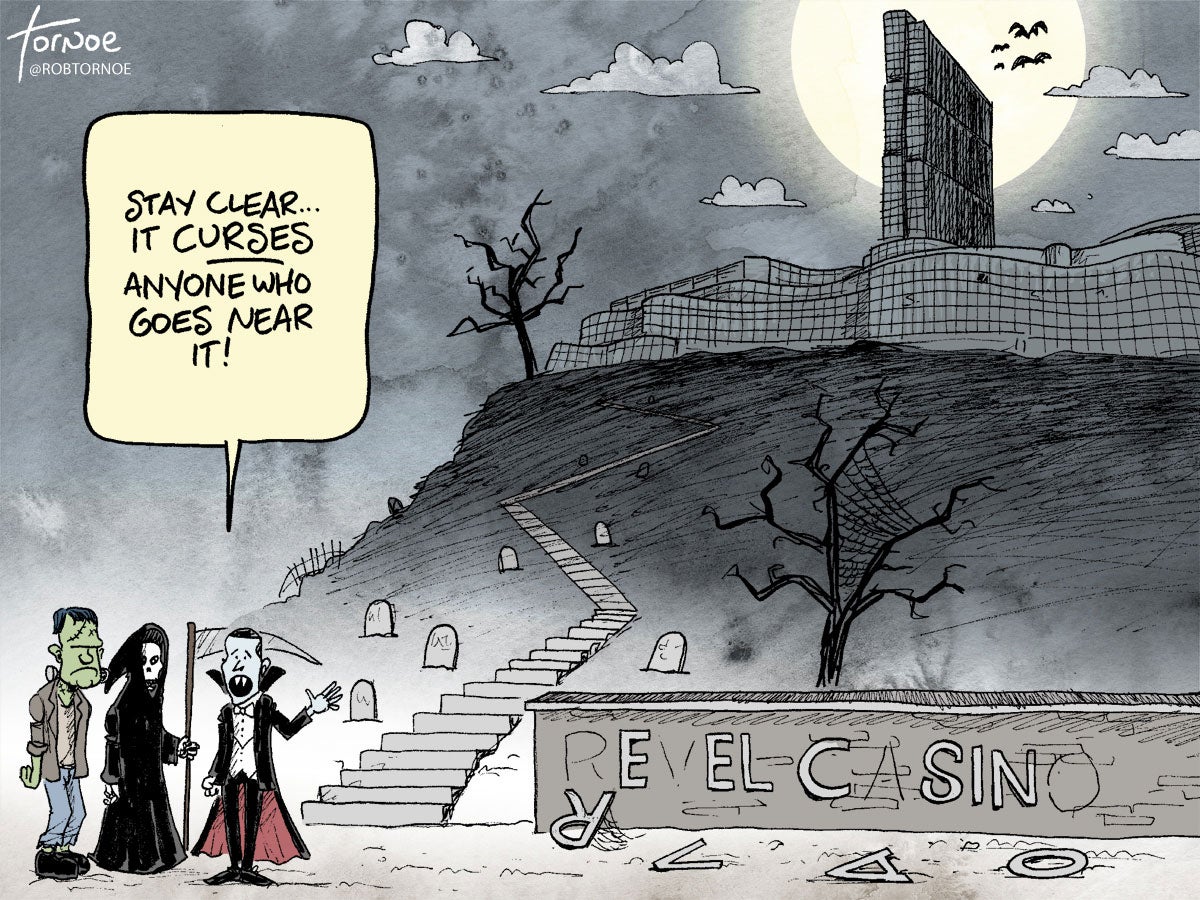Commentary: The curse of the Revel casino


The rise and fall of the Revel casino in Atlantic City is like a high-rise Amittyville Horror story. Promises of a new life in a spacious home but then bad things start to happen.
When the Revel opened on April 2, 2012 there were a lot of hopes riding on its success. It was supposed to make the investors rich, boost tax revenues, and let customers think they were living like the top 1 percent.
Now, the shell of those hopes sits empty, powerless and haunted by the 3,000 souls who lost their job in a failed project that has cursed everyone who has touched it. (Just look at Christie’s poll numbers if you don’t believe me)
The sordid tale began in 2007, when Morgan Stanley committed $1.25 billion to help build Atlantic City’s first new casino since the Borgata opened in 2003. At that moment, the Revel curse was born.
Nine months after breaking ground, a plane crash killed three Revel construction executives. Despite the crash, construction continued through cutbacks and layoffs, until investors facing the reality of cratering gaming revenue in Atlantic City made the decision to pull the plug on the project and take a $932 million loss.
In walked Christie, who was reportedly convinced by former Penn National Gaming COO and ex-New Jersey Turnpike state trooper Kevin DeSanctis to back the completion of the doomed casino. Ignoring the lack of optimism Morgan Stanley exhibited, Christie’s support (and the promise of tax credits) convinced gullible investors to pony up the remaining $1.2 billion to finish Revel’s construction.
Not long thereafter, a construction worker was killed by a lightning strike, which also injured two others. Despite the death, construction wasn’t halted and work continued on the project.
Revel finally opened its doors in April 2012, and not even Beyonce could help the casino overcome its curse. One month after opening, Revel’s casino took in just $13 million from gamblers, which placed it near the bottom of the city’s declining gambling halls – a spot it never improved upon during its brief lifetime.
With Revel burning through cash and facing numerous Wall Street downgrades, the casino filed for bankruptcy in March 2013, less than a year after opening. It filed for bankruptcy again in June 2014, and on September 2, 2014, the casino closed its doors. All told, Wall Street lost $2.5 billion on the resort.
Unfortunately, our tale doesn’t end there.
A Toronto-based real estate investment company ultimately won Revel at auction with a $110 million bid, but walked away (at a cost of $10 million) over failed negotiations with the central utility plant that heats and cools the shuttered resort.
You see, hopelessly tethered to the doomed casino is a $129 million power plant owned by ACR Energy Partners. ACR had been Revel’s sole source of energy, but since the first bankruptcy the power plant has been trying to recoup construction costs from its sole client.
In walks Florida developer (and last investor standing) Glenn Straub, who after many stops and starts was able to purchase the failed casino in April for $82 million, nearly four cents on the dollar of Revel’s $2.4 billion construction costs.
Regardless, the curse remains.
Two days after the purchase, and without a contract from Straub, ACR cut off utility services to Revel, turning the empty shell into an enormous fire hazard. The power plant is ordered to keep providing power to prevent a plane from crashing into the darkened tower of New Jersey’s second tallest building.
Despite a court order mandating payments, and facing the potential of freezing and bursting pipes in the Winter, Straub has refused to deal at all with ACR, which now faces a bank foreclosure.
In addition to his electricity woes, Straub also faces a sewer problem. Atlantic City Sewerage Company is suing, flaming Straub’s company owes $162,000, and is threatening to stop servicing the cursed resort, barring Revel from discharging waste into the local sewer system.
Meanwhile, powerless Revel faces a potential winter of frozen and bursting pipes. Straub’s solution, awaiting approval from Atlantic City officials, is to install boilers on the ground floor near the parking garage. That, or be the latest to abandon millions on the doomed project, a prospect Straub has already considered.
“I’ll tear the building down,” Straub has said, saying he’d salvage everything out of the building, sell the land and go back to Florida.
It would be a drastic end to this sordid, costly tale, but it could also be the only way to end the curse of the Revel once and for all.
——
Rob Tornoe is a cartoonist and WHYY contributor. Follow Rob on Twitter @RobTornoe
WHYY is your source for fact-based, in-depth journalism and information. As a nonprofit organization, we rely on financial support from readers like you. Please give today.





